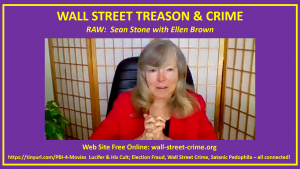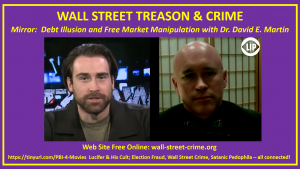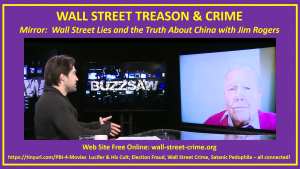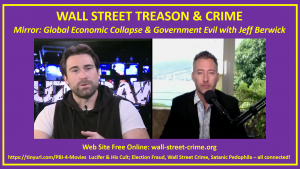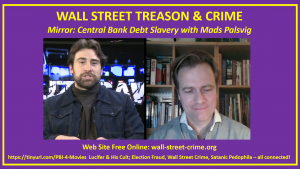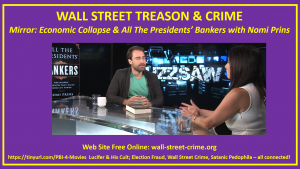In March, federal agents raided the Beverly Hills premises of a company called U.S. Private Vaults. According to a subsequent grand jury indictment, U.S. Private Vaults was a money laundering operation where drug dealers and others could anonymously stash fentanyl, guns, and “huge stacks of $100 bills” in safe deposit boxes. U.S. Private Vaults didn’t really bother to hide its business, boasting in ads, “We don’t even want to know your name.” It also shared its strip mall storefront with Gold Business, which allegedly specialized in laundering drug money via purchases of gold. Continue reading “Article: How America Became the Money Laundering Capital of the World”
Article: Poway Rabbi’s Sentencing in Financial Fraud Delayed 6 Months: Probe Persists
Article - Media, PublicationsPoway Rabbi’s Sentencing in Financial Fraud Delayed 6 Months: Probe Persists
Ken Stone, 26 April 2021
 Chabad of Poway’s former head rabbi faces a maximum five-year prison sentence for tax-evasion and other financial crimes he pled guilty to last July.
Chabad of Poway’s former head rabbi faces a maximum five-year prison sentence for tax-evasion and other financial crimes he pled guilty to last July.
But sentencing of Rabbi Yisroel Goldstein won’t take place Monday — a day short of two years after he lost his right index finger in the deadly shooting attack on his congregation. Continue reading “Article: Poway Rabbi’s Sentencing in Financial Fraud Delayed 6 Months: Probe Persists”
Article: Pension Fund Drops Suit Against Tesla Over $1.8B Bond Offer
Article - Media, PublicationsPension Fund Drops Suit Against Tesla Over $1.8B Bond Offer
Rachel Stone, 16 April 2021
A pension fund voluntarily ended its proposed class action against Tesla and its multibillionaire founder, Elon Musk, which claimed the automaker and a group of big banks acting as underwriters misled investors on a $1.8 billion bond offering.
Inter-Local Pension Fund GCC/IBT has bowed out of its securities fraud suit in California federal court following a decision in the Ninth Circuit in March not to rehear a related case, according to a notice filed Thursday. Continue reading “Article: Pension Fund Drops Suit Against Tesla Over $1.8B Bond Offer”
RAW: Sean Stone with Ellen Brown
VideoMirror: Debt Illusion and Free Market Manipulation with Dr. David E. Martin
Mirror: Wall Street Lies, Tax Insanity, & the Truth About China with Jim Rogers
Mirror: Global Economic Collapse & Government Evil with Jeff Berwick
Mirror: Central Bank Debt Slavery and Big Money Collapse, with Mads Palsvig
Mirror: Economic Collapse, Bailout & All The Presidents’ Bankers with Nomi Prins
Earth Intelligence Network Movies: A Conversation Among Principals
Subject: David J. Stone
Subject of Interest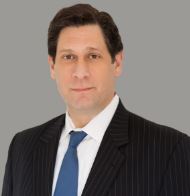 David J. Stone is a partner of the Bragar Eagel & Squire, P.C. law firm. He graduated from Boston University School of Law, in 1994. He is an Editor, of Law Review. His bar admissions include: New York, California, U.S. Courts of Appeals for the Second Circuit, Third Circuit and Ninth Circuit, U.S. District Courts for the Southern and Eastern Districts of New York, U.S. District Courts for the Northern, Central and Southern Districts of California. Stone is a member of the Legal Advisory Counsel, Sanctuary for Families.
David J. Stone is a partner of the Bragar Eagel & Squire, P.C. law firm. He graduated from Boston University School of Law, in 1994. He is an Editor, of Law Review. His bar admissions include: New York, California, U.S. Courts of Appeals for the Second Circuit, Third Circuit and Ninth Circuit, U.S. District Courts for the Southern and Eastern Districts of New York, U.S. District Courts for the Northern, Central and Southern Districts of California. Stone is a member of the Legal Advisory Counsel, Sanctuary for Families.
Paper: Market Manipulation and Directors Fiduciary Duty of Care
PaperMarket Manipulation and Directors Fiduciary Duty of Care
Market manipulation of emerging or small cap companies is pervaasive on Wall Street and according to the SEC has increased over 37% in the last decade. The nature and scope of market manipulation schemes is limited only by the creativity and audacity of their perpetrators. While the substance and mechanics of market manipulation schemes may differ, the objective is the same – to inject false information into the marketplace that artificially affects the price of the target companies securities by “interfering with the natural interplay of the forces of supply and demand.” The proliferation of market manipulation scshemes has created challenging risk-management and best practice issues for the directors of targeted companies, which require directors to continuously assess the nature and scope of their fiduciary duty of care.
Continue reading “Paper: Market Manipulation and Directors Fiduciary Duty of Care”
Paper: Fails to Deliver: The Price Impact of Naked Short Sales
PaperFails to Deliver: The Price Impact of Naked Short Sales
Elizabeth Stone
Stanford University, 27 September 2010
The effect of naked short selling on asset prices and trading dynamics is a prominent topic of debate among market participants, regulators, and the popular press. This paper evaluates the validity of the claim that naked shorting leads to negative excess returns by creating additional selling pressure. While data on naked short sales is not publicly available, Securities Exchange Commission data on failures to deliver is a strong proxy. Fail to deliver data for 2004 covers a period during which the prevalence of naked short selling was not public knowledge since neither the fail to deliver data nor the Regulation SHO List were publicly available. In excluding information and regulation effects, the analysis presented in this paper isolates potential microstructure price effects.

